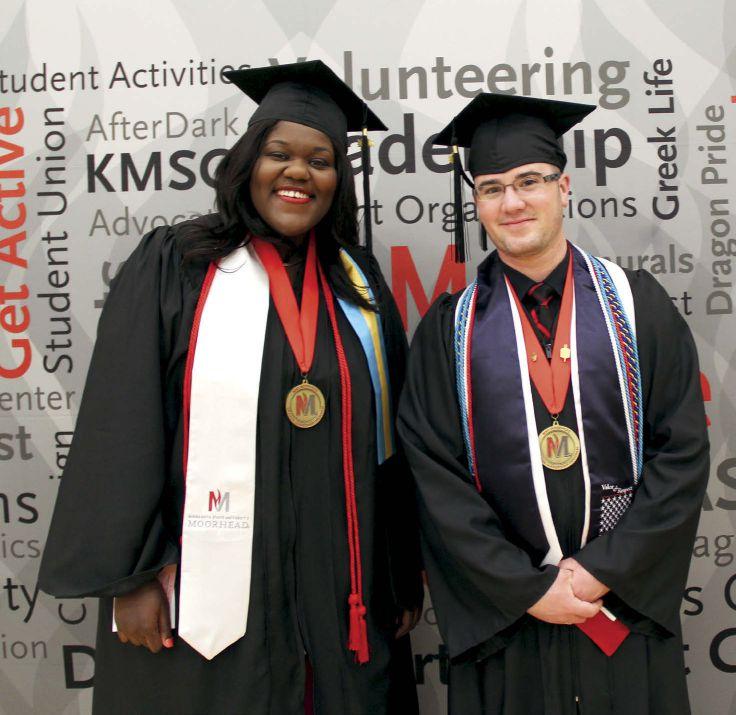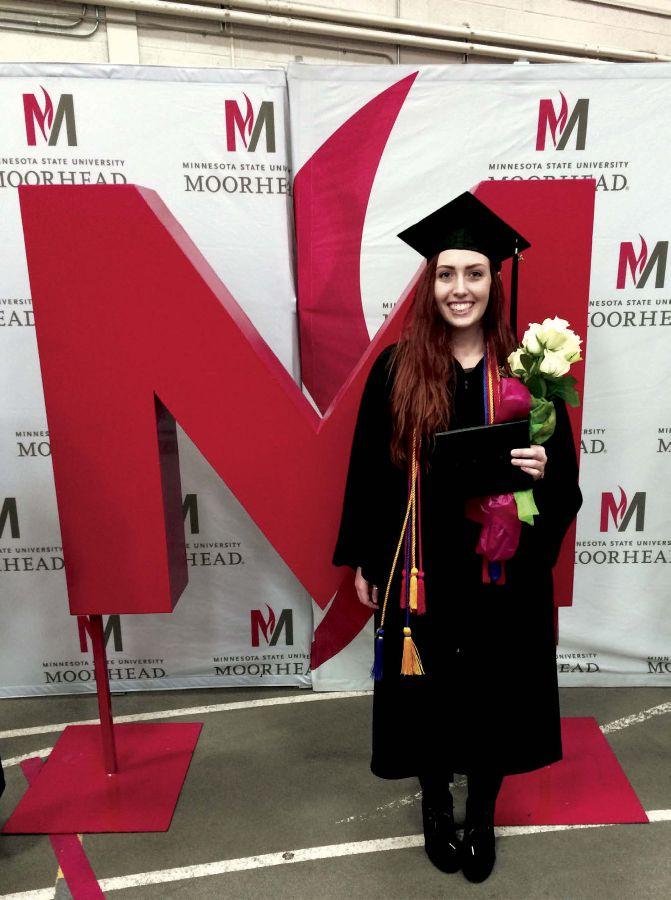
2 minute read
Language of Leadership
Many colleges and universities offer a wide range of hands-on learning opportunities that can include mentors and leadership training to help students bridge the gap between classroom and career
BY LISA GIBSON
ABOVE: Kate Roehrich graduated from Minnesota State University Moorhead in December with a Bachelor’s degree in Business Administration with an emphasis on International Business. She participated in the university’s Executive Mentorship Program twice and says the knowledge and experience she gained is invaluable. IMAGE: KATE ROEHRICH
LEFT: Katherine Beneby and Shane Kelly graduated from Minnesota State University Moorhead in spring 2014, with their official Dragon Leadership Program medallions. IMAGE: MSUM OFFICE OF STUDENT ACTIVITIES

Two types of students approach Jane Pettinger: those who have a clear idea of what they want to do with their careers and those who have no idea whatsoever. She can help them both.
Pettinger is the experiential learning coordinator and an assistant professor of management in the Paseka School of Business at Minnesota State University Moorhead. In her role, she heads up the Executive Mentorship Program, which pairs students with professional mentors in Fargo and Moorhead to teach them things they likely won’t learn in a classroom. “They tell me their dreams, in terms of career … and I find someone who’s really living that dream,” she says of assigning students to mentors.
About 30 students enroll in the program each semester and are paired with one of the roughly 76 mentors who volunteer their time and advice. Kate Roehrich, who graduated from MSUM in December with a bachelor’s degree in business administration with an emphasis on international business and a minor in Spanish, says the program was invaluable. “It was such a positive and rewarding experience for me,” she says. In her two stints in Executive Mentorship, Roehrich was paired with mentors who taught her how to build a resumé, network with important people, showcase her talents and accomplishments to potential employers, and get on the right path to her desired career. The disconnect that exists between the classroom and the professional world can be a hurdle, she says. “It’s not that easy or logical to figure out where you need to go next.”
Roehrich now is a sales development specialist for Microsoft in Fargo, N.D., a position she secured with help from her connections with Pettinger and the Executive Mentorship Program. Originally from Bismarck, N.D., Roehrich had assumed her career would take her farther away. “My plan was really not to stick around,” she says. “My plan was to try something new and get out of my comfort zone. But I realized Microsoft is this massive global company and it has a lot of global opportunities, so if I could find a way that it would work and I could be happy, then it would be worth staying for a little bit longer and see what comes about.”
Self Reflection
MSUM’s Dragon Leadership Program aims for long-term participation from students, ideally











